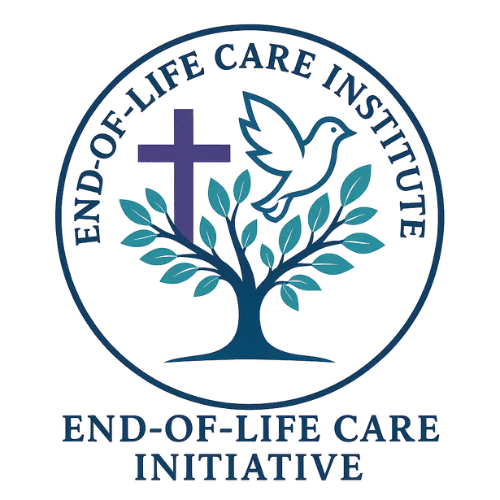
END-OF-LIFE CARE INITIATIVE SURVEY
What Is an End-of-Life Care Initiative?
An End-of-Life Care Initiative is a structured, ministry-based effort that equips churches to provide compassionate, holistic care to individuals and families facing the end of life. It is a proactive approach that integrates spiritual, emotional, and practical support into the life of the church.
Key Components of the Initiative:
Education & Training: Equipping pastors, leaders, and members with biblical, emotional, and practical knowledge to support the dying and their loved ones.
Support Ministries: Creating care teams or ministries that offer presence, prayer, companionship, meals, grief support, and legacy planning help.
Courses& Workshops: Hosting structured courses such as The Ministry of Presence or Pastoral Care Beyond Prayer to train leaders and volunteers.
Church-Wide Engagement: Encouraging the entire congregation to understand and embrace their role in providing end-of-life care—normalizing conversations around death and grief.
Policy & Preparedness: Helping churches establish written policies for funeral, memorial, homegoing, and pastoral responsibilities related to dying members.
Our Goal:
To ensure no one faces death alone—and that every church becomes a place of presence, peace, and preparation for life’s final transition.
Purpose of the End-of-Life Care Initiative
The purpose of the End-of-Life Care Initiative is to equip churches to serve individuals and families with compassion, dignity, and spiritual support during life’s final season. It ensures that no one walks through death or grief alone by providing training, tools, and a structured ministry approach rooted in faith. This initiative reflects the church’s biblical calling to care for the sick, comfort the grieving, and honor life from beginning to end.
Why Pastors, Church Leaders, Lay Leaders, and Chaplains Should Take Our Survey
Taking our survey is the first step toward understanding how your church currently supports individuals and families facing serious illness, dying, or grief. It helps us assess your church’s needs, strengths, and readiness to implement an End-of-Life Care Initiative.
By completing the survey, you will:
Identify gaps and opportunities in your current care ministry
Receive personalized support and guidance
Gain access to free training, tools, and resources
Shape a program that aligns with your church’s mission and capacity
The survey is not a test—it’s a ministry tool to help your church grow in compassion, preparedness, and service.
Your responses will help us understand how best to support you and your church in developing or refining your funeral, memorial, or homegoing service policy. Our desire is to walk alongside you in this important part of ministry, so your congregation is prepared with clarity and compassion when it matters most.
We thank you in advance for your time and honesty. Your insights are deeply appreciated.
There are 12 questions. This survey should take 10-30 minutes. Please be honest with yourself when answering the questions.
Now that you’ve had a chance to reflect on what the Bible teaches about order, care, and preparation in times of loss, we invite you to complete a brief survey.